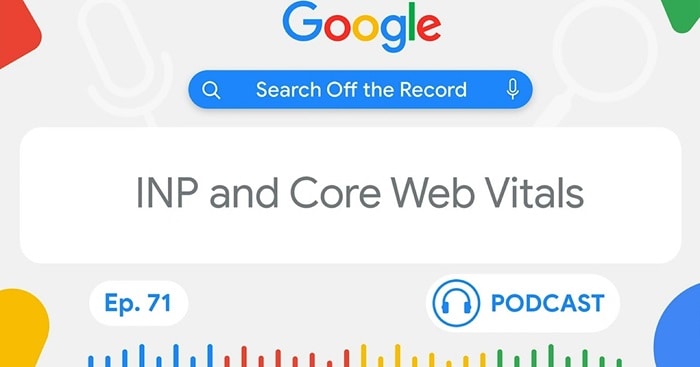In the latest episode of Google’s Search Off the Record podcast, John Mueller, Search Advocate at the company, called on website owners to de-emphasize making small adjustments in an effort to incrementally improve their Core Web Vitals scores.
He added that such minor optimizations will likely lead to few noticeable changes when it comes to search rankings. Since Google announced the inclusion of them in ranking algorithms, Core Web Vitals have received a lot of interest: they are a set of user-centric metrics with which to measure the performance of a website.

These metrics include the largest contentful paint (LCP), cumulative layout shift (CLS), and just added to these, the interaction to next paint (INP), thereby pushing website owners to optimize their pages for better results.
What is Incremental Improvements on Google?
It’s those best adjustments or tweaks, introduced incrementally over time across any aspect of various services, products, algorithms, or platforms of Google. Such tweaks are usually made to improve user experience, performance, functionality, or other key metrics that are relevant to goals and objectives.
These can involve changes to search algorithms, refreshes in user interface design, enhancement of the features or functionalities of Google products, and performance optimization for better relevance of results.
Nevertheless, Mueller’s remarks underscore the potential drawbacks of excessive optimization for these metrics:
“I think a big issue is also that site owners sometimes over-fixate on the metrics themselves. They see some number, and it’s like, ‘Oh my gosh, I have to get this to like some other number, some higher state.’ And then they spend months of time working on this. And they see this as they’re doing something for their Search rankings. And probably a lot of those incremental changes are not really visible in Search.”
Mueller recognized the allure of concentrating on metrics, considering the limited availability of tangible SEO measurements.
“There are very few metrics with regards to SEO that you can look at explicitly and say, ‘Oh, it’s like 17, and I can make it 15. So it’s, I don’t know, like human nature to almost focus on them. But, at the same time, you have to be careful that you don’t over-fixate on them and spend an inappropriate amount of time.”
Although Mueller didn’t completely disregard the significance of Core Web Vitals, his remarks imply the importance of strategic optimization efforts, prioritizing substantial enhancements over chasing minor gains.
For the complete discussion, you can listen to the linked episode, starting at the 24:04 timestamp.
Google Says No Perfect Formula for Determining Search Rankings
Here are some essential insights derived from Mueller’s guidance:
- Focus on significant optimizations rather than chasing small improvements.
- Use tools to identify the areas that need improvement, but avoid fixating on achieving flawless scores.
- Maintain a balance between Core Web Vitals and other vital SEO components like content quality, relevance, and user engagement.
- Understand that while not all optimizations directly impact search rankings, they still play a role in enhancing user experience.
By integrating these considerations, you can formulate a comprehensive strategy that integrates Core Web Vitals with other factors, leading to improved outcomes for your website.
Would you like to read more about “Incremental Improvements on Google May Not Affect Rankings” related articles? If so, we invite you to take a look at our other tech topics before you leave!
Use our Internet marketing service to help you rank on the first page of SERP.










